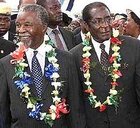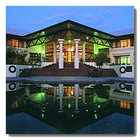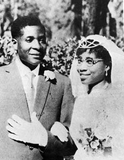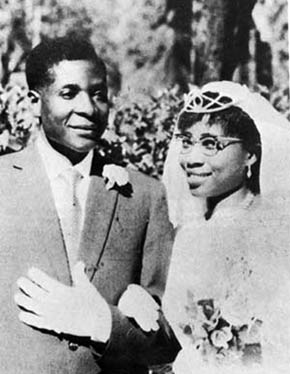Article Information
-
Posted By :
Jay Cole

- Posted On : Feb 18, 2024
- Views : 3374
- Category : History
- Description : Zimbabwe is modern Africa birth pain; a woman cannot give birth without pain, and some time, a stormy labor. Yet one cannot say that the child will be bad because there was a birth pain and stormy labor. Rather, the child would be loved and one would even say that it is worthy of its labor pain
Overview
 Like Ethiopia, Zimbabwe was untouchable by outside powers right up to the 19th century. In the 17th century the Portuguese began a war to destroy Zimbabwe’s trade route, but met with a military response far beyond their comprehension, they fled and never to return. Zimbabwe fell in the hands of the British because the fleeing people from the south created an environment that affect Zimbabwe ability militarily, and in a 100 years fell. But with the remembrance of The Great Zimbabwe, their resurgence was victorious in The Battle for Zimbabwe.
Like Ethiopia, Zimbabwe was untouchable by outside powers right up to the 19th century. In the 17th century the Portuguese began a war to destroy Zimbabwe’s trade route, but met with a military response far beyond their comprehension, they fled and never to return. Zimbabwe fell in the hands of the British because the fleeing people from the south created an environment that affect Zimbabwe ability militarily, and in a 100 years fell. But with the remembrance of The Great Zimbabwe, their resurgence was victorious in The Battle for Zimbabwe.In this battle, the African war banner rose for the first time since Menelik II in the battle of Adowa. The red gold and green war banner rose and turned up side down, and soldiers painted their face for war. And out of Jamaica came the hymn for battle: “Natty dread a liberate Zimbabwe”. “Africa a liberate Zimbabwe.” “Arm in arms with arms we arm to over come this little trouble.” And in this battle, Robert Mugabe succeed in wrestling power out of the hands of Europe, a great victory for Africa.
 Zimbabwe is modern Africa birth pain; a woman cannot give birth without pain, and some time, a stormy labor. Yet one cannot say that the child will be bad because there was a birth pain and stormy labor. Rather, the child would be loved and one would even say that it is worthy of its labor pain.
Zimbabwe is modern Africa birth pain; a woman cannot give birth without pain, and some time, a stormy labor. Yet one cannot say that the child will be bad because there was a birth pain and stormy labor. Rather, the child would be loved and one would even say that it is worthy of its labor pain.It must be taken to account that the relations of the parts to any given whole requires an understanding grasp of the relation of all parts to that whole; and in the case of Zimbabwe this means the relations of Mr Mugabe are part of the development of the people and European part in control of the resources, for the benefit of the people of Europe – banking, mining, agriculture, are all part of the whole.
There are also repercussion for the people of Zimbabwe having control of these resources, and Europe lost control of these resources. The meaningful reality, in this deep contention was a war of economics between Africa and Europe, where Europe want power and control in Africa.
But with the strong defense of the United Southern African States, Africa was victorious over Europe in this battle.The name Zimbabwe ” means “great houses of stone,” a city built of stone, the Empire of Great Zimbabwe emerge about the 11th century. Today, with its resurgence Zimbabwe made its manifestation of greatness within its people. With its capital city, Harare, taken from the Shona chieftain Neharawa, ‘one who never sleeps,’ (It was said that no enemy could ever launch a sneak attack on him), with a population of 15 million, Zimbabwe located in Southern Africa, between South Africa and Zambia with land boundaries total: 3,066 km border countries: Botswana 813 km, Mozambique 1,231 km, South Africa 225 km, Zambia 797 km . Climate: tropical; moderate. Natural resources: coal, chromium ore, asbestos, gold, nickel, copper, iron ore, vanadium, lithium, tin, platinum group metals. President, Robert Mugabe.
 President, Robert Mugabe with his second wife Grace .
President, Robert Mugabe with his second wife Grace . Mr Mugabe married again after his first wife died. His second wife, Grace, beautiful loving and strong and manifest that powerful Zimbabwean type of personality. Mugabe and Grace have three children, Bona, Robert and Chatunga. Mugabe married his second wife Grace, in 1996 after his first wife Sally died. Sally met Mugabe at Takoradi Teacher Training College in Ghana where they were both teaching in the 1950s. They were married in 1961 in Zimbabwe, when he was 37.
 First wife Sally and Mugabe
First wife Sally and MugabeIn 1967, Sally went into exile in London and spent the next eight years agitating and campaigning for the release of political detainees in Zimbabwe , including her husband. Mugabe was to remain incarcerated for about ten years. The couple’s only son, Nhamodzenyika who was born in 1963 during his detention, succumbed to a severe attack of malaria and died in Ghana in 1966. After Mugabe’s release in 1975, Sally joined him in Mozambique. She was to become Zimbabwe’s First Lady at independence in 1980 after Mugabe became the president. She died in 1992 aged 60 after a long battle against kidney disease.

written by J Cole 2002 for Trenchtown Press
